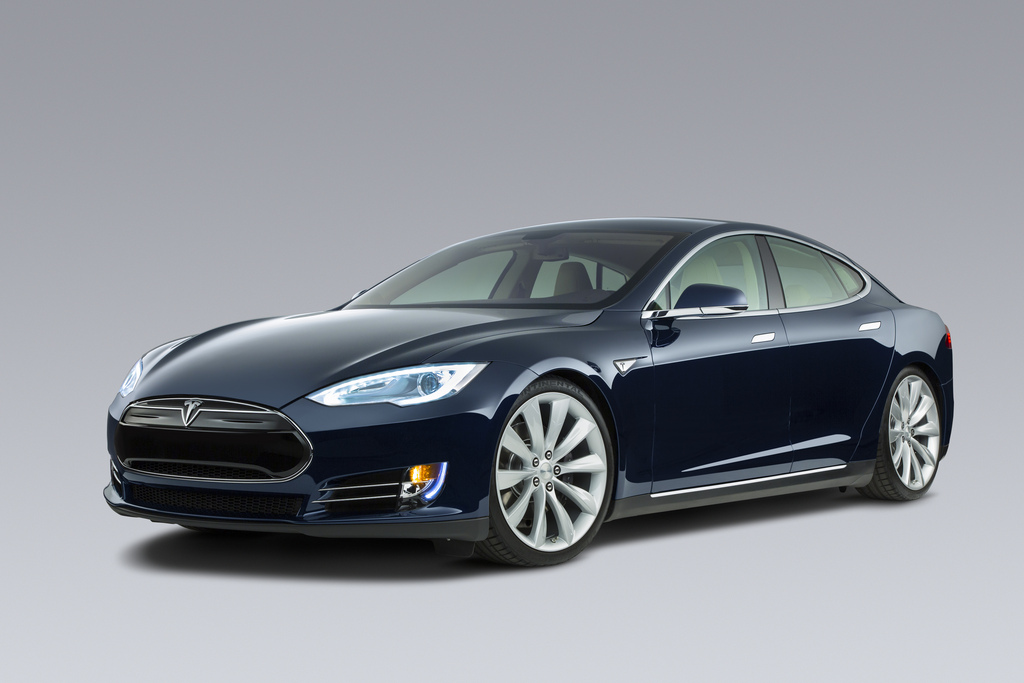Investors in startup electric-car maker Tesla Motors [NSDQ:TSLA] have had quite the wild ride lately.
Following its first-ever profitable quarter, with its share price soaring above $80, Tesla announced last Wednesday that it would issue new stock and warrants.
Now, Tesla has quietly increased its offering, which could raise the company more than $1 billion if its stock price stays at current levels.
30 percent more
In a Bloomberg article late Friday, CEO Elon Musk said the offering would be increased by 30 percent over the level announced just two days previously.
On Wednesday, Tesla said it would offer 2.7 million to 3.1 million more shares of its common stock, as well as issuing up to $450 million in convertible debt.
At a closing price of $84.84 per share that day, total receipts to the company would have been $229 million to $263 million for the stock, for a total of $680 million to $710 million.
The expanded offering of up to 3.9 million shares could net the company as much as $1.08 billion.
Many analysts say the high price of Tesla stock is due to a "short squeeze," in which investors who felt the share price was too high sold Tesla shares they didn't own and now must buy the stock to cover their short positions.
To date, Tesla has sold approximately 10,000 cars globally. All but 2,500 of them are the company's all-electric Model S luxury sport sedan, which starts at $69,900.
Musk follows Iacocca?
The Bloomberg article compared Musk to Lee Iacocca, who ran Chrysler during and after its 1979 bankruptcy.
Under his leadership, Chrysler repaid its government bailout loans with interest in 1983, seven years ahead of the due date. Musk intends to do the same, nine years early.

2013 Tesla Model S
Most of Tesla's $465 million low-interest loan from the U.S. Department of Energy is still outstanding, although Tesla has made payments of $25.4 million to date.
But Wednesday's offering announcement included the pledge that Tesla would use much of the proceeds to pay off the loan entirely.
Taxpayers might see a profit of $12.8 million after the loan is paid back by the end of this month.
The company will have roughly $680 million in cash and cash equivalents afterward, up from $214 million at the end of March.
Ford, Nissan, Tesla vs. Fisker
The DoE loan was granted to Tesla in July 2009 as part of its advanced-technology vehiclemanufacturing program.
Much larger amounts went to both Ford ($5.9 billion) and Nissan ($1.6 billion, of which it drew down $1.4 billion), which are making payments on schedule.
The fourth large loan commitment was $529 million to Fisker Automotive, although the DoE froze disbursements after $192 million had been paid out.
Fisker is now in deep trouble, having laid off most of its employees and not built any cars since last July.
Meanwhile, Tesla stock closed Friday at $91.50, more than five times its June 2010 initial public offering price of $17.
______________________________________________













